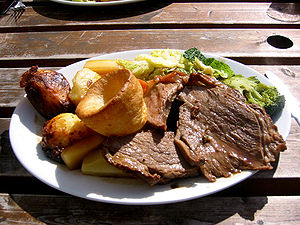One of the best things about living in Arizona is the sunny weather almost all year long. That means you have to be diligent about food safety relative to high temperatures long after others have packed up their grills and retreated to their kitchens. Here are some helpful food safety tips to keep your summer food safe and your family secure no matter what month it is.
1. High temperatures do cause more cases of food poisoning.
Bacteria, the main source of food poisoning, love the heat as much as we do and multiply much faster in temperatures over 90° according to the USDA. This increased production can make food dangerous much faster than many people expect. Take care when leaving food out at parties. Even indoors foods can spoil. Make sure items that must be refrigerated are kept chilled while they are laid out and get them back in the refrigerator as soon as possible.
2. Outdoor cooking can create unsafe conditions.
While your kitchen has an oven that you can set to a specific temperature, a sink with antibacterial soap always at the ready, and a clean, sanitary surface for slicing and dicing, these things are often missing from outdoor cooking facilities. Mitigate the danger by using a meat thermometer and packing antibacterial wipes to clean your hands and any surfaces you will be using to prep, cook, or serve food.
3. Know how long you can leave perishable items out before they become unsafe to eat.
What would an Arizona barbecue be without spicy salsa and a generous helping of guacamole? You don’t need to find out. There is no need to skip these kinds of perishable dishes in order to play it safe. The government guideline from the CDC says that perishable items can be left out for 2 hours unless it is over 90°. When the temperatures are in the 90’s and 100’s, don’t leave these items out for more than an hour without keeping them chilled.
4. Be careful of cross contamination.
Everyone knows that washing your hands is the best defense against carrying harmful bacteria from raw meat to surfaces or other foods. There seems to be a lot of confusion about utensils and tableware in terms of cross contamination. According to the USDA, the best way to protect against cross contamination is to keep raw meat and poultry completely separate from cooked meat and ready to eat foods. Wrap raw meat in extra plastic wrap to protect against leakage during transport. Use a clean utensil and plate to transfer cooked meat and poultry from the grill to the table.
5. Arm yourself with information and if you are wondering about safety, check it out.
If you have a safety concern about your food, don’t assume anything. Get the answer and keep your family, friends, and guests safe. The USDA, FDA, and CDC, all provide excellent resources that can answer almost any question you have about food safety at www.foodsafety.gov . You can also check out the Top Ten Food Safety Myths slideshow provided by the University of Nebraska-Lincoln to test your knowledge. (http://lancaster.unl.edu/food/myths-ss/index.htm)
Don’t let salmonella spoil your summer fun or e.coli intrude on your fall festivities. Take a few extra minutes to make sure you are following food safety guidelines and enjoy the wonderful Arizona weather.
Sources:
http://www.fsis.usda.gov/factsheets/foodborne_illness_peaks_in_summer/index.asp
http://www.foodsafety.gov/blog/salsa.html
http://www.foodsafety.gov/blog/homemadeicecream.html
Related articles
- Avoiding Hot Grease & Liquid Burns (fillyourplate.org)
- 5 Reasons You Should be Happy Supermarkets Aren’t Run Like Schools (fillyourplate.org)



